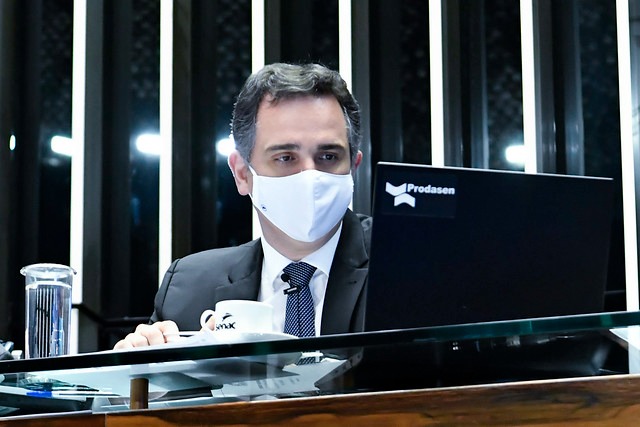O PL 5829 (Bill 5829/19) was approved with amendments, late this Wednesday afternoon (15), in the plenary session of the Federal Senate.
The document was discussed in a single round and received the majority of votes. Access here the report by senator Marcos Rogério (DEM-RO).
The proposal needed at least 50% of votes in favor and no changes to its structure to come into force.
In this sense, because of the amendments presented, it will have to return to the Chamber of Deputies for a new vote, which, this time, will decide the real future of the project: whether or not it will become law.
The text, authored by deputy Silas Câmara (Republicanos/AM), aims to create the GD Legal Framework (distributed generation) in Brazil, attributing to ANEEL (National Electric Energy Agency) the responsibility for considering technical, environmental and social attributes in the calculation of energy compensation.
PL 5829 aims to bring more legal and regulatory security to the sustainable growth of the Brazilian electricity sector, extending the collection of charges and tariffs for the use of transmission and distribution systems. Before being considered by the Senate, the PL needed to be approved by the Chamber of Deputies, where it was reported by deputy Lafayette de Andrada (Republicanos/MG).
Amendments accepted and rejected
During the session, when reading the PL 5829 report, senator Marcos Rogério informed that 14 parliamentary amendments were accepted and that many others were rejected. “Although they have legitimate motivations, (many amendments) compromise the spirit of the proposition. There is a risk of mischaracterizing it. Therefore, without prejudice […] I understand that at this moment they must be rejected”, stated Marco Rogério.
Check which amendments were accepted:
Amendment No. 2 (Senator Irajá): establishes rules for requests for new connections from rural consumer units in areas declared universal.
Amendment No. 5 (Senator Jean Paul Prates): includes “costs” in the valuation of the impacts of Microgeneration and Distributed Minigeneration (MMGD).
Amendment nº 11 (Senator Paulo Paim): includes “costs” in the valuation of the impacts of Microgeneration and Distributed Minigeneration (MMGD).
Amendment nº 22 (Senator Weverton): increases, from 120 days to 9 months, the period for Microgeneration and Distributed Minigeneration (MMGD) consumer units reached by the transition period that guarantees the maintenance of current rules until 2045 to install their equipment.
Amendment nº 30 (Senator José Aníbal): allows the classification of floating photovoltaic solar panels in reservoirs as Microgeneration and Distributed Minigeneration (MMGD), allowing the division of generating units up to the power limit.
Amendment nº 34 (Senator Jorginho Mello): establishes that surplus consumer units of the Electric Energy Compensation System (SCEE) not used by a distribution concessionaire within 60 months may be allocated to licensees located within the concessionaire's coverage area.
Amendment nº 36 (Senator Carlos Fávaro): provides that the electrical energy contracted by distributors from Microgeneration and Distributed Minigeration (MMGD) will be considered in the maximum percentage of 10% of their annual expansion needs that these companies can acquire from distributed generation.
Amendment nº 42 (Senator Carlos Fávaro): increases the power limits for inclusion in Microgeneration and Distributed Minigeneration (MMGD), for dispatchable sources and, mainly, for hydroelectric projects; Furthermore, it changes the maximum power of hydroelectric projects eligible for registration and the power limits for hydroelectric projects to be granted through authorization.
Amendment nº 43 (Senator Carlos Fávaro): allows hydroelectric projects subject to registration, and with electricity contracts in the regulated and free markets, to be classified as Microgeneration and Distributed Minigeneration (MMGD).
Amendments numbered 45, 46, 47, 48, 49 and 50 were also approved, which are not available in the Senate's progress form.

















One Response
In practice, what does this roughly mean?